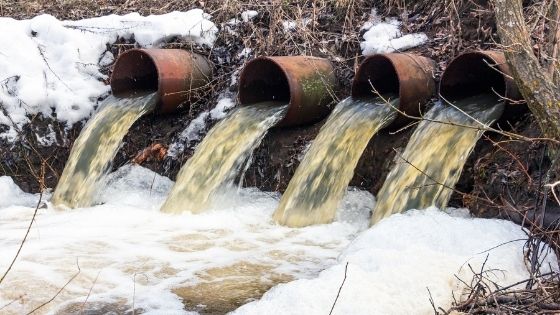Did you know that our planet is covered with 71% of water? However, freshwater is just 3% of the total available water on Earth. Do you think the entire freshwater is accessible to mankind? No, it isn’t. Out of the 3% of the freshwater, 0.25% is inaccessible as it is locked in the form of glaciers, ice caps, and atmosphere.
We just have access to 0.5% of the Earth’s freshwater. This very little accessible freshwater is unfortunately polluted by us, mankind. Globally around 70- 80% of the industrial waste and other municipal wastes are dumped into various water bodies with fresh water. This pollutes the water and makes it toxic. These pollutants can be identified only by water testing.
What is water pollution?
The contamination of water bodies through various activities is called water pollution. This leads to changes in the physical, chemical, or biological properties of water. This makes it unfit for drinking and other purposes. Contaminated water leads to adverse effects on both aquatic and non- aquatic living beings. This disturbs the natural ecosystems and causes an imbalance in the environment.
What are the causes of water pollution?
Water pollution is increasing rapidly every day. Water is known as the universal solvent since it is capable of dissolving many substances. This property of water is one of the main reasons for it to get contaminated easily. Here are a few causes of water pollution:
- Dumping solid waste like plastic, glass, and other materials into water bodies.
- Emissions of toxic industrial waste into rivers, streams, and lakes.
- Contaminants like pesticides, fertilizers, and other chemicals get dissolved in underground water. This makes it unfit for drinking.
- Cross-connections of sewage water and drinking water. At times, the sewage water or commonly known as wastewater leaks into portable water making it contaminated.
- Animal waste from farms is also one of the contaminants of water. It increases the nutrient contents in water. Excess nutrients also lead to lethal effects.
- Natural disasters like earthquakes, floods, storms, tsunamis, etc disturb the water bodies. They tend to damage drinking water wells and underground water sources. The wastes from various places like sewage, livestock, factories, etc are dumped into freshwater sources leading to the contamination of water.
- Accidents like oil spills also contribute to water pollution. Since oil does not get dissolved in water, it forms a layer of sludge on the surface of the water, causing damage to aquatic animals, plants, and also marine birds. This usually occurs in oceans.
What are the effects of water pollution?
Water pollution is a serious threat to both mankind and nature. It is the main cause of various waterborne diseases. In some cases, water pollution leads to mild damage, whereas in some cases it might lead to fatal effects.
Effects of water pollution on human health
- Consuming water with high levels of bisphenol A leads to damage to the brain, reproductive system, and immune system.
- The presence of pesticides in drinking water can lead to damage to the nervous system, reproductive system, endocrine glands. It can also lead to cancer.
- Fluorides in water reduce the strength of bones and teeth. It makes your teeth yellow and causes severe damage to the spinal cord.
- There are various other waterborne diseases like cholera, typhoid, Hepatitis A or E, and various other dreadful diseases.
Effects of water pollution on the environment
- Water pollution can reduce the oxygen levels inside the water resulting in the suffocation of fish and other aquatic species.
- It can cause disruption in the food chain leading to damage of the whole ecosystem
- Global warming is one of the serious consequences of water pollution.
- It also causes changes in the climate. The water cycle gets disturbed resulting in changes in rain patterns, etc.
Identification and Prevention:
Water pollution can be identified by changes in color, smell, or taste. Water can still be contaminated without showing any physical changes. Water testing is the only way to identify the presence of contaminants in water. Water testing is important to maintain a good quality of water and also to test the suitability before using it.
Prevention
- Do Not dump solid waste, sewage waste, grease, or oils in the freshwater bodies.
- Use phosphate-free detergents and soaps.
- Don’t flush medicine, drugs, or cosmetics.
- Use eco-friendly materials and opt for organic food.
Water is the basic essential for all living beings. We can follow these simple steps at home to cut down water pollution. We, mankind is the main cause of water pollution. This serious issue cannot be wiped off in one day or by one person. All of us should do our part in a clean and safe environment.




















